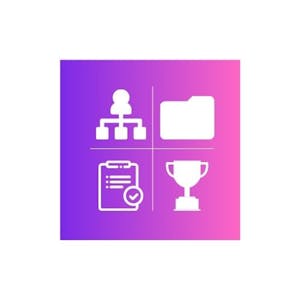Embedded Systems using C
About this Course
Embark on a comprehensive journey into Embedded Systems with this course. Module 1, \"Introduction to Embedded Systems,\" lays the foundation by exploring principles, architectures, and essential devices. In Module 2, \"Programming Fundamentals in C,\" participants master C programming essentials, including operators, storage classes, and flow control structures. Transitioning to Module 3, \"Advanced Concepts in C for Embedded Systems,\" participants delve into functions, arrays, pointers, and string manipulation techniques. By the course\'s conclusion, participants emerge equipped with the knowledge and skills necessary for confident navigation and programming in C for embedded systems development. Learning Outcomes: Upon completing this course, participants will: 1) Gain a solid understanding of Embedded Systems principles, architectures, and essential devices. 2) Master C programming essentials, including operators, storage classes, and flow control structures. 3) Dive deep into advanced C concepts crucial for embedded systems, such as functions, arrays, pointers, and string manipulation techniques. 4) Acquire practical skills through hands-on projects and exercises, enhancing their ability to develop embedded systems applications. 5) Develop confidence in their ability to design, program, and troubleshoot embedded systems using C. Target Learners: 1) Electrical Engineering or Computer Science Students: Those pursuing degrees in electrical engineering or computer science, particularly with an interest in hardware-software integration and low-level programming. 2) Embedded Systems Professionals: Engineers or professionals already working in the field of embedded systems who want to deepen their understanding of C programming for embedded applications and enhance their skill set. Pre-requisites: 1) Basic Programming Knowledge: Familiarity with programming concepts such as variables, loops, functions, and data structures. 2) Understanding of C Programming Language: Proficiency in the C programming language including syntax, data types, pointers, memory management, and basic file operations. 3) Fundamental Electronics Knowledge: Basic understanding of digital electronics, microcontrollers, and input/output (I/O) interfacing concepts. 4) Computer Architecture Basics: Knowledge of computer architecture fundamentals such as CPU, memory, input/output devices, and the concept of interrupts.Created by: EDUCBA

Related Online Courses
This specialization is a guide to creating your own business. We will cover a progression of topics necessary for successful business creation including: mindset, ideation, planning, action and... more
This specialization is intended for data scientists and software developers to create software that uses commonly available hardware. Students will be introduced to CUDA and libraries that allow... more
By the end of this project, you will have created a free account, added tasks, and set goals to your ClickUp workspace. You will learn how to customize your workspace and add folders and lists to... more
In the Leadership and Society Specialization, you will develop a comprehensive understanding of leadership principles, ethical decision-making for the welfare of society, and effective conflict... more
This is a master class in Customer Centricity. Professor Jagdish Sheth, 2020 Padma Bhushan Award winner for Literature and Education, guides you through proven strategies and practical steps for... more








